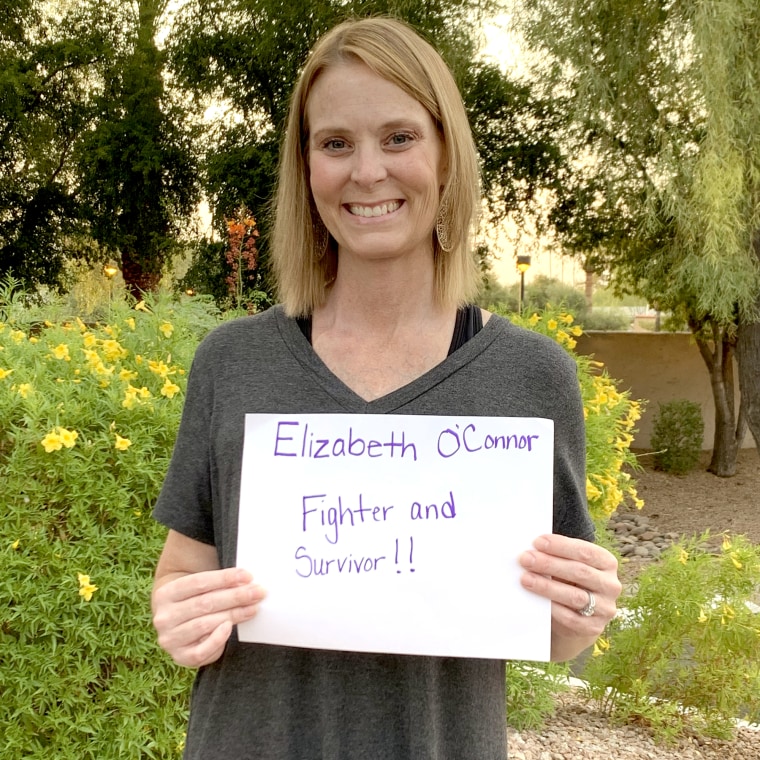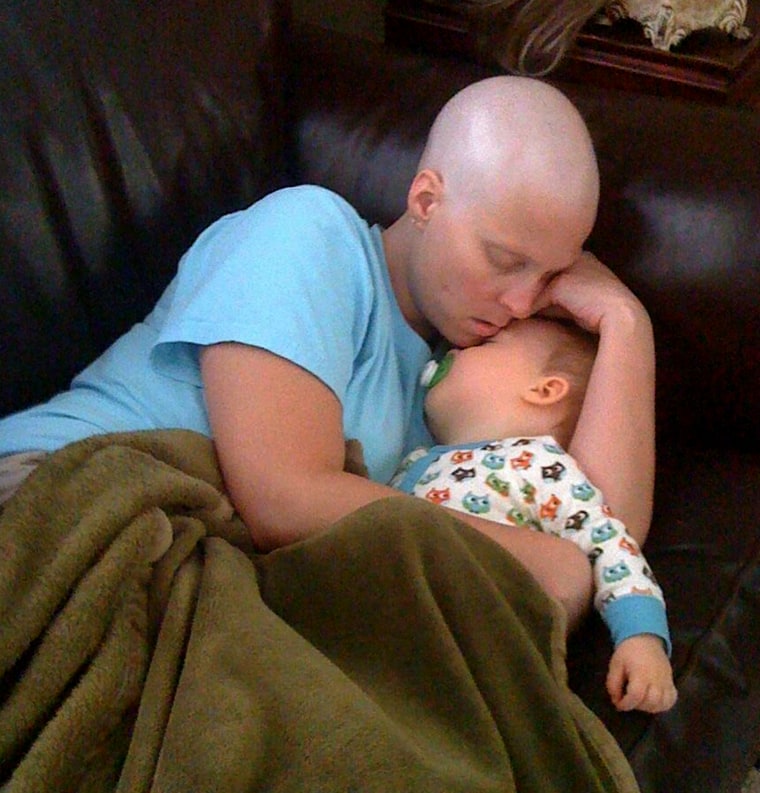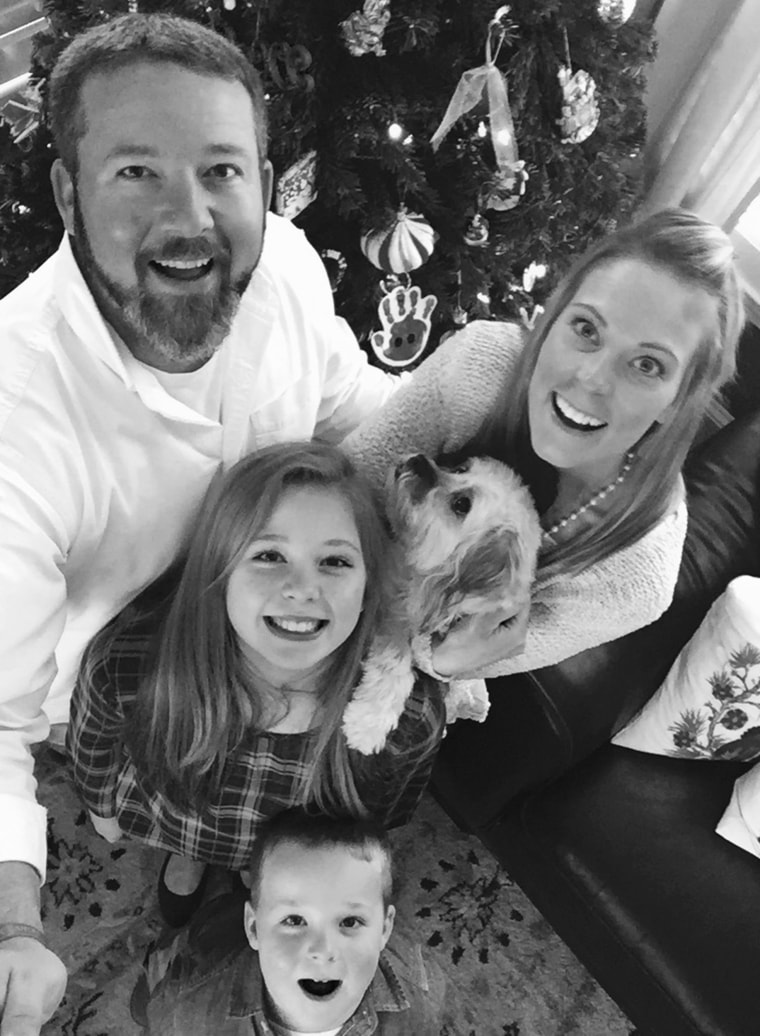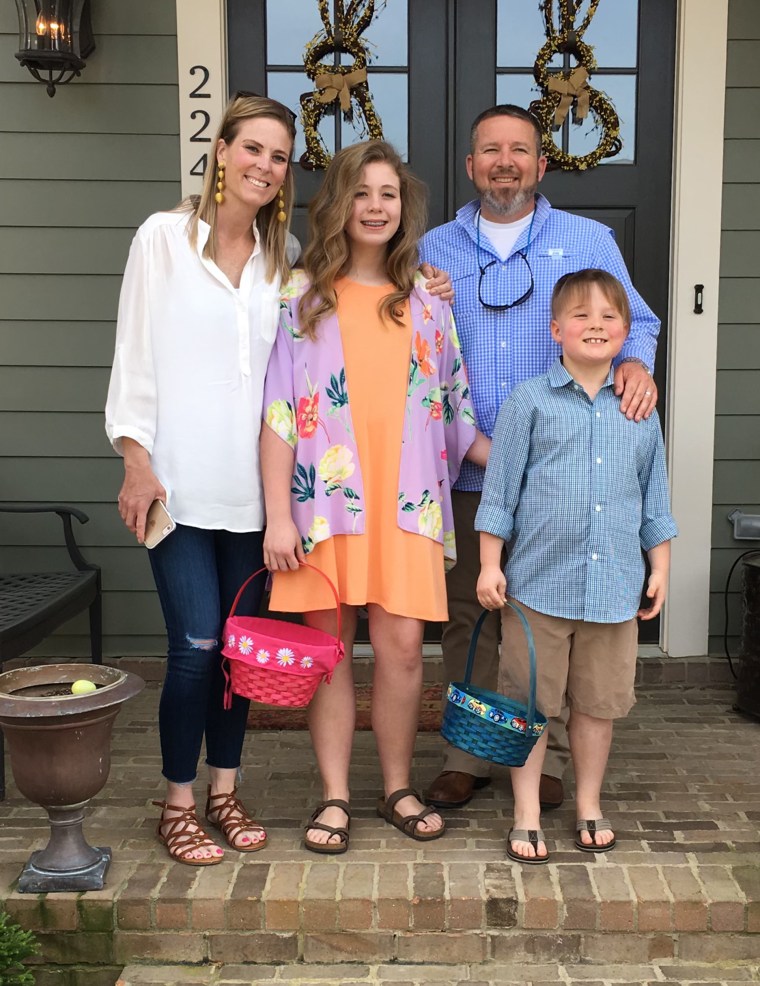When Elizabeth O’Connor was pregnant with her second child, her doctor noticed a mass on her ovary. After an emergency cesarean section and a hysterectomy two days later, O’Connor learned that she had stage 4 pancreatic cancer.
“I was in shock. I was 31 years old. I felt like, ‘Why is this happening to me,’” the 42-year-old from Woodstock, Georgia, told TODAY. “I couldn’t believe that I was facing cancer, especially pancreatic cancer because the odds have never been great for pancreatic cancer.”

O’Connor, who has had pancreatic cancer for 11 years, is defying odds. Alex Trebek, the former host of “Jeopardy!” died in November 2020 after being diagnosed a little more than a year earlier and Rep. John Lewis died in July 2020, not long after he received his diagnosis. The five-year survival rate for a person with stage 4 pancreatic cancer is 10%, according to the American Cancer Society.
“I hope that I’m bringing people a fighting spirit and hope, no matter what their diagnosis is,” she said. “My story is so unusual. You never hear about long-term survivors.”
Symptoms during pregnancy reveal mass
After struggling to become pregnant a second time, O’Connor was thrilled to be expecting again. But she noticed she felt a “fullness” and didn’t want to eat. She dropped weight and was unwell. Her doctor performed an ultrasound and found a large cyst on her ovary.
“That made me really anxious,” she said. “We did ultrasounds every two weeks.”
On Oct. 18, 2010, she visited the hospital for fluids and went into labor and needed an emergency C-section. Her doctor told her that her ovaries looked “really angry” and recommended a hysterectomy, which she underwent two days later.
“Meanwhile I was in the intensive care unit with fluid on my lungs and fluid in my abdomen,” she explained. “I was recovering from that.”

When she and her son, who needed to be in the neonatal unit for a few days, returned home, she was feeding him when O’Connor noticed her arm was swollen and hot. Her doctor recommended an ultrasound and they discovered a blood clot. She returned to the hospital for treatment and that’s when the results of her ovarian biopsy returned.
“They came back as pancreatic cancer,” O’Connor said. “It was very difficult. Yet at the same time I had some sort of relief that I knew what I was facing because during pregnancy it just caused me so much anxiety.”
Loss of appetite and weight loss are two symptoms of pancreatic cancer. Others include:
- Jaundice.
- Light-colored stools.
- Itchy skin.
- Dark urine.
- Back pain.
- Exhaustion.
- Nausea and vomiting.
- Pain in the upper or middle belly and back.
At first, her oncologist recommended chemotherapy to “make her comfortable” because other treatment options seemed impossible.
“It was radiation can never happen. Surgery will never happen because the way the tumor was on the tail of the pancreas there were two major arteries that go to the heart. The tumor was entwined with those two arteries,” she said. “My biggest fear was going into the oncologist's office and him saying, ‘There’s nothing really we can do.’”
But chemotherapy shrunk the tumor. She underwent radiation, then surgery in 2012 to remove the large mass. Then she had a chemotherapy regimen that was developed thanks to Stand Up to Cancer-funded research. In 2014, she had part of her left lung removed to take out a mass that grew there and then she started having seizures.
“A tumor was forming in the left side of my brain so it was affecting my right side,” she said. “I had brain surgery to remove the tumor followed up with radiation. The brain (tumor) has given me the most problems.”
While having so many surgeries and rounds of chemotherapy and radiation was tough for O’Connor, she also felt grateful.
“Cancer changes you. Every day things — just being able to go to a baseball game and being able to drive my kids to practices — were so much sweeter,” she said. “You slow down and take in every moment because you don’t want to waste time.”
In 2018, she experienced a seizure while she was at work as a preschool teacher. A biopsy revealed it was cancer again and she underwent radiation. Again, in 2020 she had another recurrence of cancer in her brain and she started a new chemotherapeutic regimen. In July 2020, she hit her head and doctors worried she had a hematoma, pooling of blood under the skin.
“The bump was very painful and it would not go away,” she said.
Her doctor recommended that she visit a dermatologist for a biopsy to be safe.
“It’s pancreatic cancer of the scalp, which is extremely rare,” she said. “I had that removed in October 2020 followed by radiation again.”

After she finished another round of chemotherapy in February 2021, she started immunotherapy, which is “an absolute game changer.”
“I’m in a really good place. Immunotherapy is so much different because (with chemotherapy) I would be down for several days, just staying in bed, feeling nauseous and tired. With immunotherapy I can get an infusion and go about the rest of my day,” O’Connor said. “I am so thankful for it because I just don’t have to waste precious time with being sick and staying in bed and not doing stuff with my kids.”
Life with long-time pancreatic cancer
Recently, O’Connor had the opportunity to throw out the first pitch during game four of the World Series thanks to a donation from the Jean, Lewis and Kari Wolff Family Foundation to Stand Up to Cancer and a partnership with Major League Baseball. She managed to get the ball across the plate, but it definitely wasn’t a strike. She hopes to increase awareness of the disease, which makes up 3% of cancer diagnoses in the United States and 7% of deaths from cancer, according to the American Cancer Society.
“I just want to be able to bring more awareness to pancreatic cancer,” she said. “The focus now is on having early detection. There’s no early detection for pancreatic cancer.”

She feels grateful she's had time to parent her children, Abigail, 16, and Andrew, 11.
“I am very thankful I was given more time to be with my family,” she said. “Thanks to the research, my doctors and Stand Up to Cancer, I’ve been given 11 years and that’s pretty amazing.”